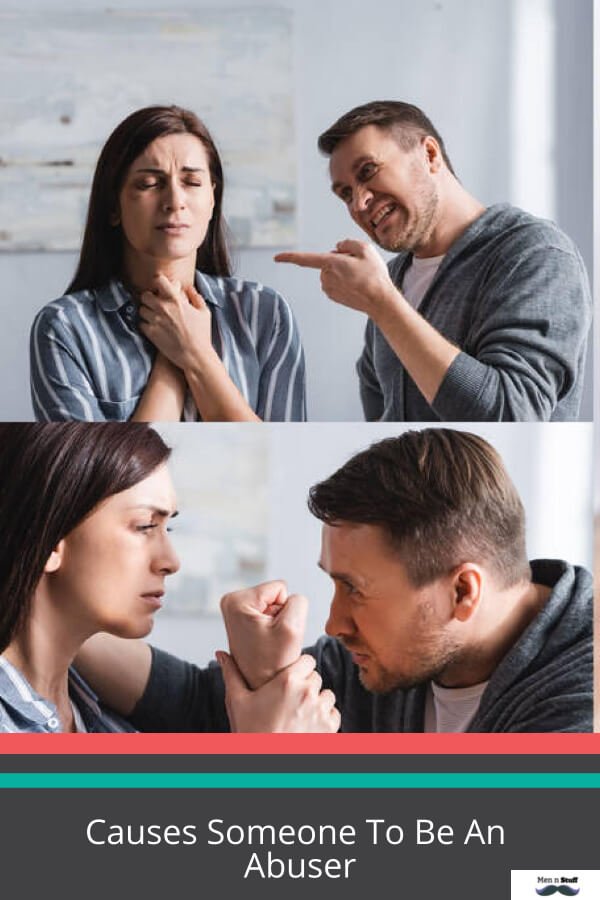Yes, abusive men can change, but it is difficult and requires a deep commitment to change. A study by the Duluth Domestic Violence Intervention Project found that 75% of men who completed a batterer intervention program did not re-offend within two years.

Can Abusive Men Change?
Yes, abusive men can change, but it is difficult and requires a deep commitment to change. A study by the Duluth Domestic Violence Intervention Project found that 75% of men who completed a batterer intervention program did not re-offend within two years. However, it is important to note that relapse rates are high, and even men who appear to be changing can become abusive again.
How do abusive men change?
If an abusive man wants to change, he must first acknowledge and take responsibility for his abusive behavior. He must also be willing to learn new skills and strategies for coping with anger, conflict, and stress. He may also need to address any underlying mental health issues.
Abusers can change through individual therapy, group therapy, or batterer intervention programs. These programs can help abusers understand the root causes of their behavior and learn how to manage their anger and emotions in a healthy way.
Is it safe to stay with an abusive partner who is trying to change?
Even if an abusive partner is trying to change, it is still important to take precautions to protect yourself. This may include setting clear boundaries, having a safety plan in place, and having access to support from friends, family, or a professional.
If you are in an abusive relationship, it is important to remember that you are not alone. There are many people who can help you stay safe and get support. You can call the National Domestic Violence Hotline at 1-800-799-SAFE (7233) or visit thehotline.org for more information.
Causes Someone To Be An Abuser
Abusive behaviors are intricate and multifaceted, often rooted in diverse triggering factors. While it is essential to note that these causes do not justify abusive actions, understanding them can contribute significantly to prevention efforts. Here are some of the key causal factors that may contribute to making someone an abuser:
1. Childhood experiences:
Many researchers have linked the likelihood of becoming an abuser to adverse childhood experiences, such as emotional, physical, or sexual abuse. People who grew up witnessing domestic violence often replicate the same behaviors in their relationships.
2. Psychological Disorders:
Certain psychological disorders such as bipolar disorder, borderline personality disorder, or antisocial personality disorder could contribute to someone becoming abusive.
3. Peer Influence and Societal Norms:
Society sometimes labels aggression as a symbol of power and control, especially among male peers. Individuals may be likely to behave violently if they perceive that their peers endorse such behavior.
4. Substance Abuse:
Alcohol, drugs, and other substance misuse often coincide with abusive behavior. However, it is essential to clarify that substance abuse does not lead to violence directly but tends to escalate the severity of the abuse.
5. Low Self-Esteem:
Individuals with reduced self-esteem often seek control over others as a means to boost their ego. It is common for abusers to suffer from deep-seated insecurities.
6. Cultural Factors:
In some societies, patriarchal norms and certain cultural practices normalize acts of violence, particularly against women, which can facilitate the pathway towards becoming an abuser.
7. Learned Behavior:
Abuse can also be a learned response. This behavior can be inherited over generations if it is not addressed.
8. Power and Control:
The urge to maintain dominance or control in a relationship can lead individuals to exhibit abusive behavior.
9. Lack of Empathy:
A low level of empathy may cause individuals to overlook the emotional suffering their actions cause, leading to abuse.
| Causes | Description |
|---|---|
| Childhood experiences | Witnessing or experiencing abuse can lead to replication of the same behavior. |
| Psychological Disorders | Certain disorders can predispose individuals to abusive behavior. |
| Peer Influence and Societal Norms | Aggression encouraged by peers or society can contribute to violent behaviour. |
| Substance Abuse | Substance misuse often escalates the severity of abuse. |
| Low Self-Esteem | Control over others can be sought as a mechanism to boost ego. |
| Cultural Factors | Patriarchal norms and cultural practices can normalize violence. |
| Learned Behavior | Abusive behavior can be passed down over generations if not addressed. |
| Power and Control | A desire for dominance in a relationship often leads to abusive behavior. |
| Lack of Empathy | Overlooking emotional suffering caused by actions can lead to abuse. |
Understanding these risk factors is instrumental in formulating effective interventions and preventive measures to reduce the incidence of abuse. The fight against abuse demands comprehensive strategies, focusing not only on the victims but also the offenders. It is vital to foster a culture that absolutely rejects violence in every context.
What Are The Effects Of Emotional Abuse?
Emotional abuse can have profound and lasting effects on victims’ mental and emotional well-being. Here are some of the detailed effects:
- Low Self-Esteem: Constant criticism and belittling by the abuser can erode the victim’s self-worth, leading to feelings of worthlessness and inadequacy.
- Anxiety and Depression: Emotional abuse often triggers anxiety and depression. Victims may experience persistent sadness, hopelessness, and a sense of being trapped.
- Isolation: Abusers may isolate victims from friends and family, leading to social withdrawal and loneliness. This isolation can exacerbate feelings of helplessness.
- Guilt and Self-Blame: Victims may internalize the abuser’s accusations, feeling responsible for the abuse. This can lead to profound guilt and self-blame.
- Post-Traumatic Stress Disorder (PTSD): Long-term emotional abuse can result in symptoms similar to PTSD, including flashbacks, nightmares, and heightened anxiety.
- Difficulty Trusting Others: Victims of emotional abuse may struggle to trust others in future relationships, as they may fear similar mistreatment.
- Physical Health Effects: Chronic stress from emotional abuse can lead to physical health problems, such as headaches, digestive issues, and even a weakened immune system.
- Self-Doubt and Decision-Making: Victims may become indecisive and overly reliant on others’ opinions due to the constant undermining of their judgment.
- Substance Abuse: Some victims turn to substance abuse as a coping mechanism to numb emotional pain.
- Self-Harm and Suicidal Thoughts: In severe cases, emotional abuse can lead to self-harming behaviors or suicidal thoughts as victims struggle to cope with their emotional pain.
- Impact on Future Relationships: The effects of emotional abuse can extend to future relationships, as victims may have difficulty forming healthy attachments or may unintentionally perpetuate abusive patterns.
- Difficulty in Setting Boundaries: Victims may struggle to assert themselves and set boundaries in various aspects of life due to a lack of self-confidence.
What Are The Characteristics Of An Abuser?
There are certain characteristics of an abuser that can be used to identify them. For instance, how they react when something bad happens – usually with violence and anger. This includes:
– Yelling at their significant other without provocation or justification for why it’s happening;
– Belittling what the person is saying by talking over them in a demeaning manner as if they don’t have any value themselves; and finally,
– Acting like everything is always about them no matter what context the conversation was initially started on.
The abusers also see every action as either being a strength or weakness which means anything from taking care of oneself to doing things well would be seen as a sign of failure while “putting up with ” things for the sake of the abuser would be seen as a sign of strength.
The abuse can also take on different forms which could include financial control, verbal or physical violence and even stalking behaviors after separating from an abusive partner. Abusers often believe that it’s their fault if they themselves are abused in any way because they chose to stay with them in the first place.
Abusive relationships typically don’t have happy endings but there are steps anyone can take in order to regain some sense of control over their life – not just when it comes to dealing with abusers…
Can The Abused Become An Abuser?
This is a difficult question to answer because people who are abused can react in different ways – many of them will eventually leave the relationship and live happier lives while others stay with their abuser for years.
Some abusive relationships come from an environment where both parties are being hurt by one another, so they may not be able to make any real change without outside help. Others have been hurt emotionally which could lead to depression or anxiety disorders that cause violent behaviors later on in life. Yet still, other abuse survivors take all of their pent-up anger out on themselves rather than those around them…
A common misconception about victims of domestic violence is that it’s just women who get hit but some studies show that as much as 25% to 30% of men are abused by their wives.
Does Emotional Abuse Cause Codependency?
The next sentence can be used as the last sentence of this paragraph.
But is it possible that some people who are victims or survivors of abuse develop codependency and become addicted to unhealthy relational patterns?
It might seem on the surface like there’s a difference between emotional abuse causing codependent relationships, but in reality, they have many similarities.
Both types of behavior involve someone needing too much from their partner while expecting little for themselves, with neither party getting what they need out of the relationship because not only do you expect your partner to take care of all your needs but you also don’t know how to meet them yourself so you end up depending on others.
References:
https://www.thehotline.org/resources/is-change-possible-in-an-abuser/
https://ineffableliving.com/can-abusers-change/

